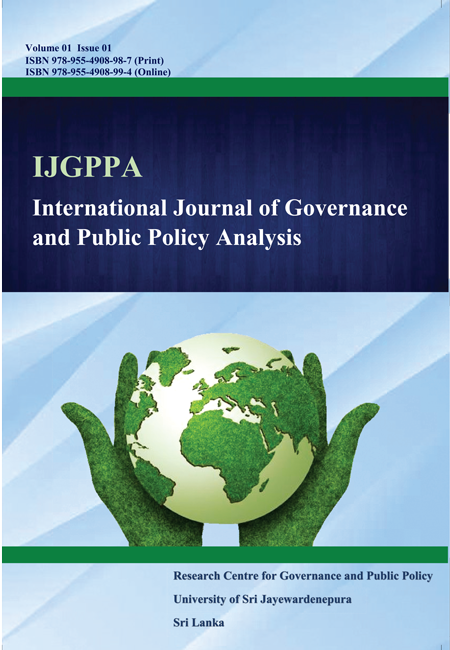Access to Water for All: A Case of Dhaka of Bangladesh
Abstract
Water is literally the essence of life, and unsafe water is a threat to human lives. Dhaka, the capital of Bangladesh, is one of the most densely populated cities in the world, which has nearly 20 million residents who face tremendous difficulties in getting safe water for their daily needs. A crisis of water governance in terms of administrative and financial incapacity hinders the opportunity to access water. Added to that, disproportionate uses of water, knowledge gap about safe water, violation of laws, and absence of structural ideas on sustainable water management are critically important issues in terms of ‘access to water’. However, Dhaka Water Supply and Sewerage Authority (DWASA) is not well-equipped for providing safe drinking water due to various reasons, including the limited number of water treatment plants. In this paper, key challenges of water management were examined. It explores how the existing authority of water management delivers services and how the role of different stakeholder exerts influence in the sector. Adopting the qualitative research approach, the study tried to find out the current magnitude of water crisis in Dhaka city. While this was a qualitative study, based on the secondary data with personal observations, the data was analysed descriptively.
Keywords: Bangladesh, Dhaka, Water, Access

